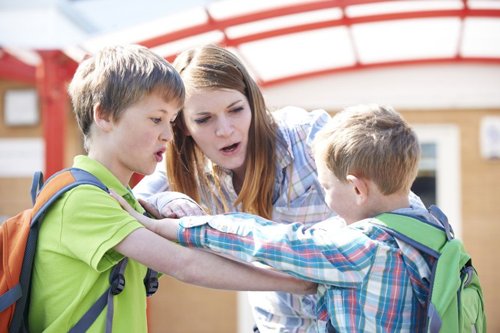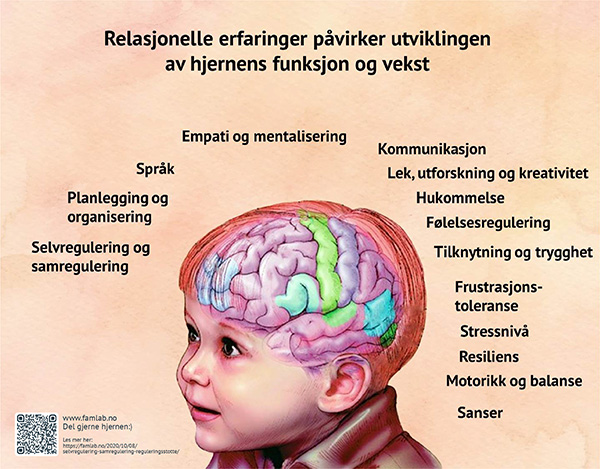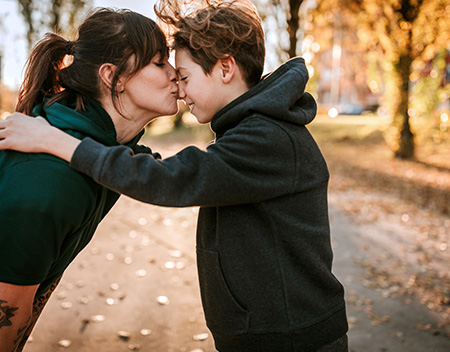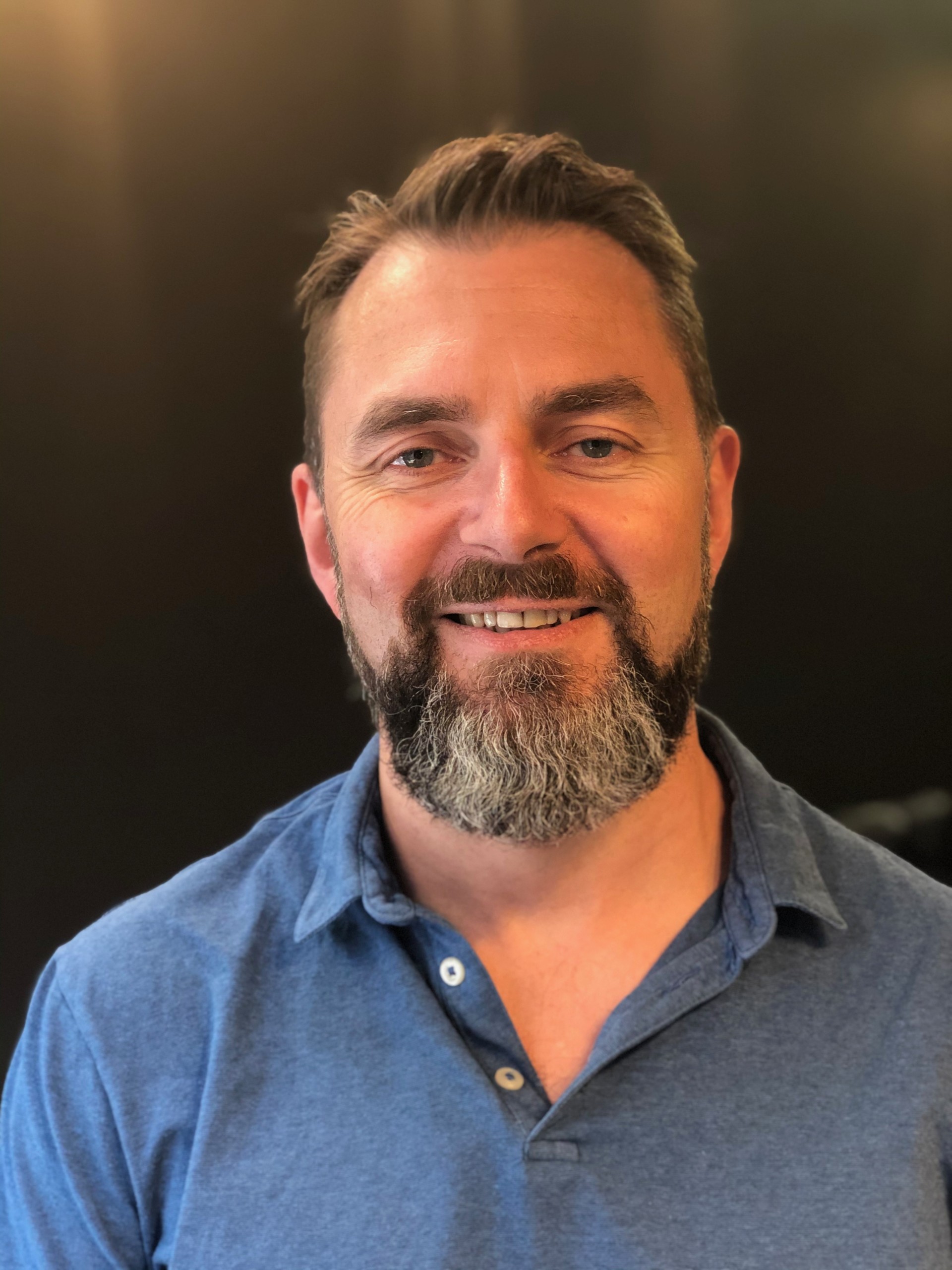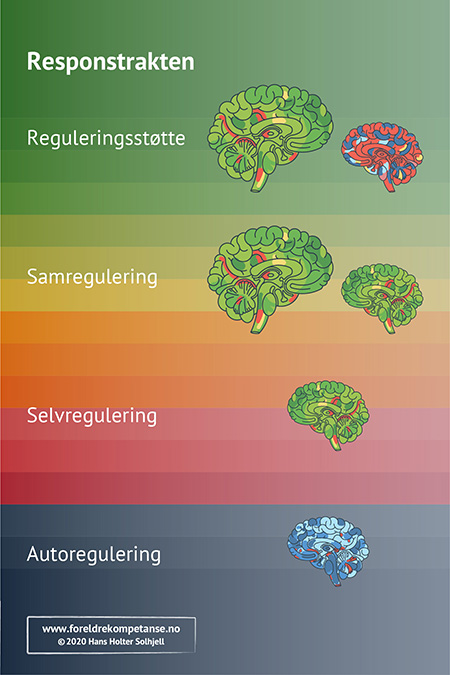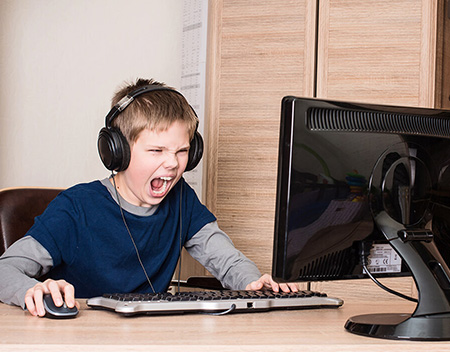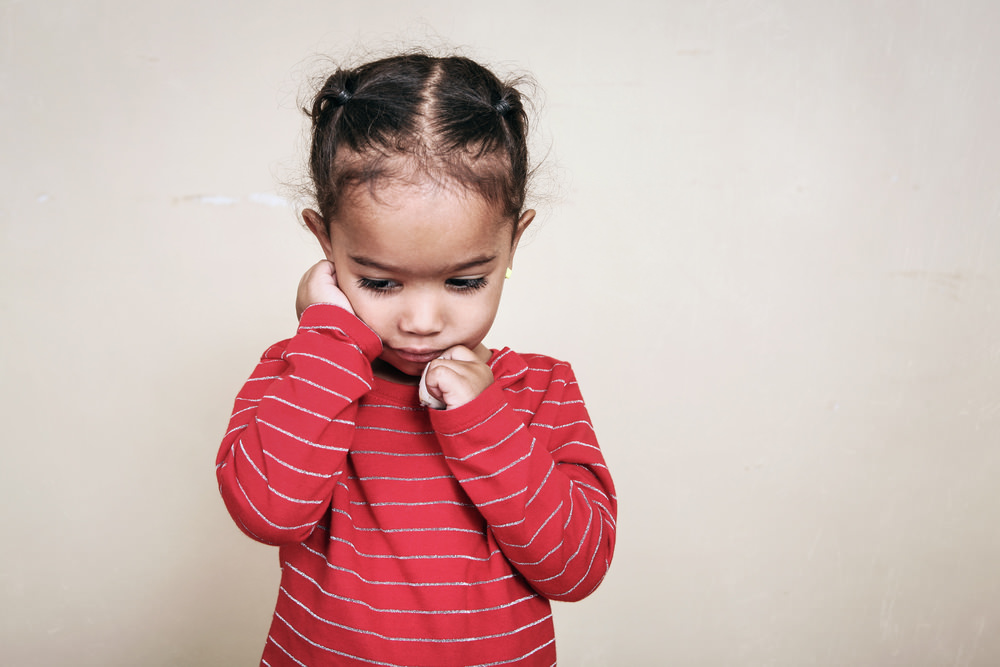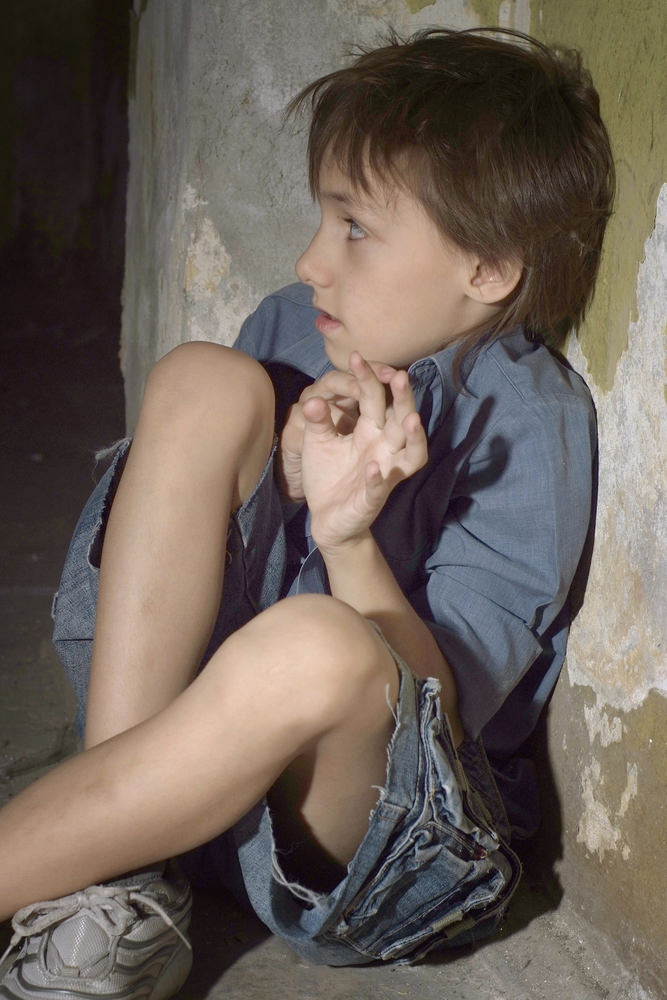
TRAUMA, RELATIONAL STRESS, AND CHILD DEVELOPMENT
A course for parents
and professionals who work with children.
A practically oriented introduction
to the
PLS regulation support model
Does any of this sound familiar to you, in relation to one or more children?
- Frequent strong reactions that last for a long time.
- It takes very little to trigger strong and prolonged reactions.
- Often frustrated, bored, or angry.
- Getting involved in conflict with others easily.
- Overly passive or submissive during play.
- Lack of motivation, excessive sensitivity, or too self-controlled.
If you are experiencing some or most of these things, you already know it can be exhausting, demanding, and frustrating for the child, yourself, siblings, parents, and others. And it can make adults feel unsure about how to relate to the situation.
A practical introductory course
In this course, you will get a basic understanding of trauma and relational stress and how both positive and negative stress help to influence and shape a child’s development.
We focus especially on the effects that stress and trauma have on the development of a child’s brain, self-regulation, emotional regulation, self-expression, play, and exploration.
We also look at the important role of adults (parents, family members, school and kindergarten employees) in a child’s development of self-regulation, and how adults can work together to create a safe and relational environment that is supportive of children’s development.
For parents and those who work with children
The course is appropriate for parents, those who work with children, and adults who want to better understand themselves and their own reactions to relational stress and trauma.
In addition to a basic understanding of trauma and relational stress, this course is also focused on what you can do in practice in everyday life, and the PLS regulation support model.
This course is for those who want a practical understanding and approach, not those who primarily is looking for more theory.
Course materials
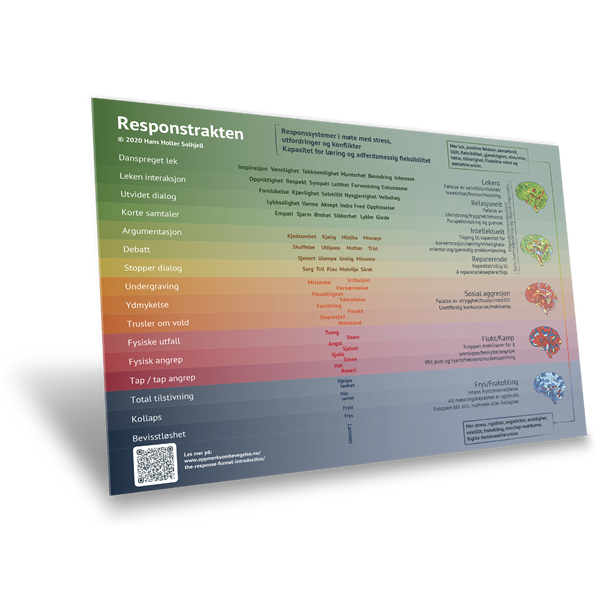
The Response Funnel
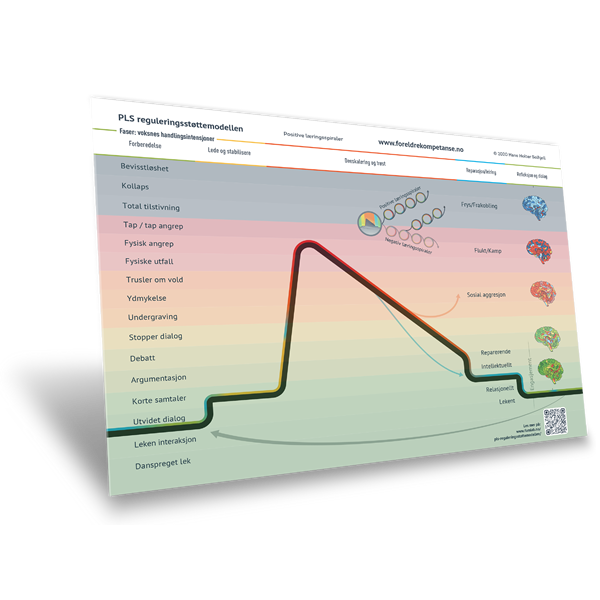
PLS Regulation Support Model
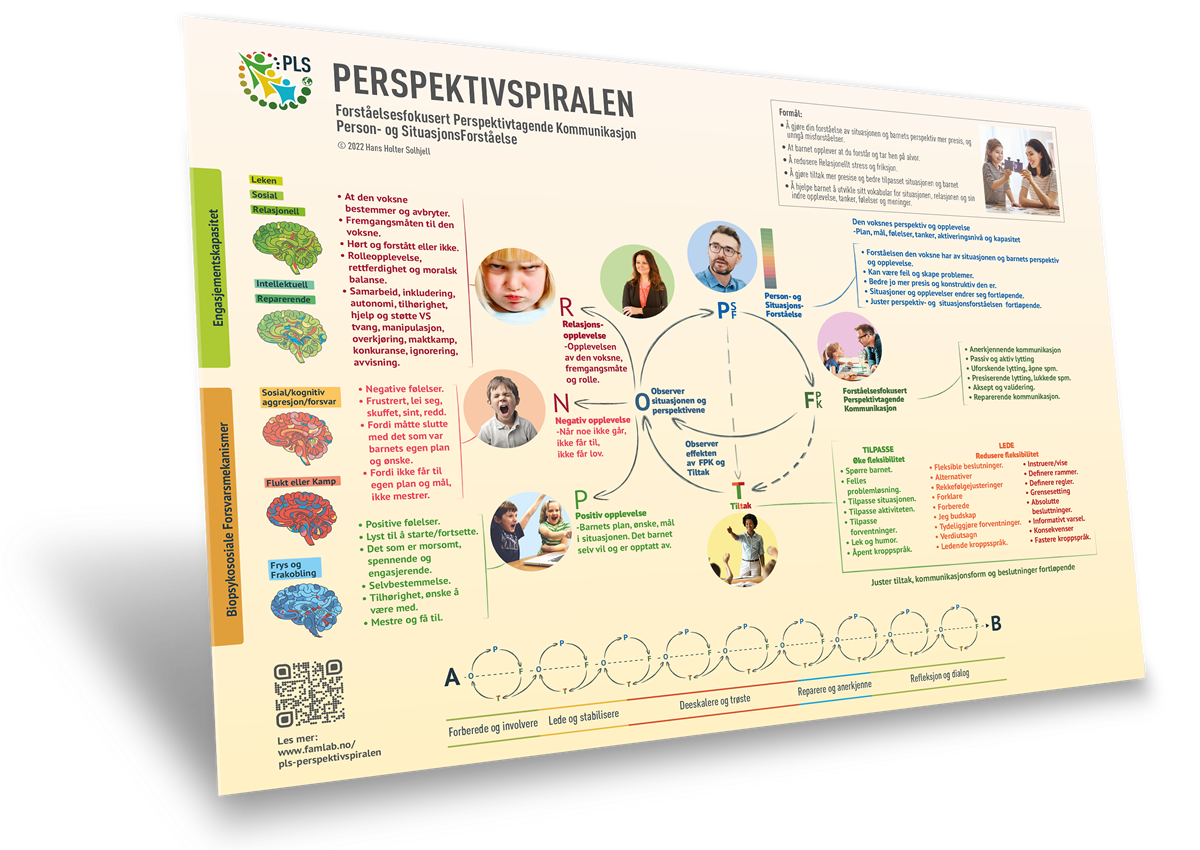
Perspective Spiral
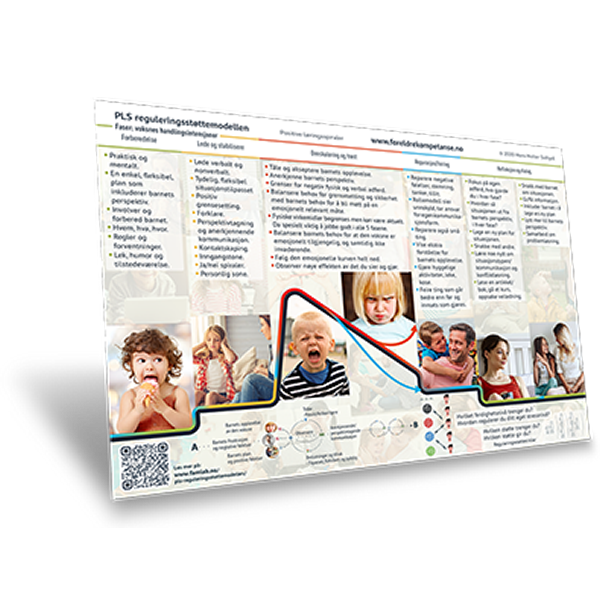
PLS oversikt og
oppsummering
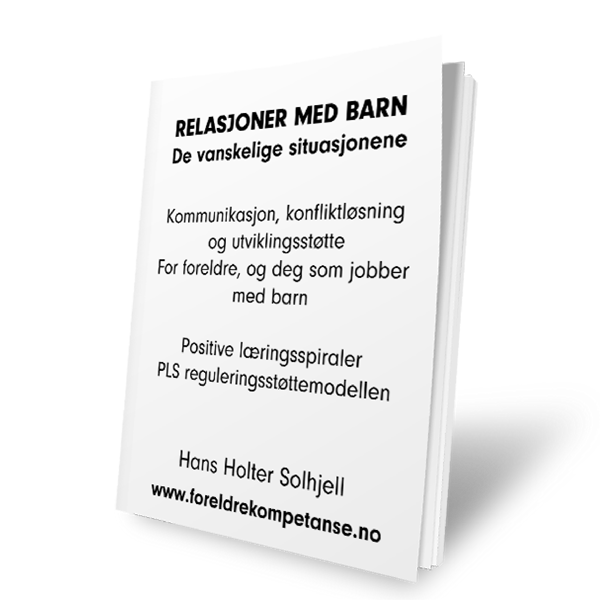
Course Manual

The Response Funnel

PLS Regulation Support Model

Perspective Spiral

PLS oversikt og oppsummering

Course Manual
In this course package you get:
- Trauma, relational stress, and child development 3 hours online course
- An hour-long online course on the perspective spiral
- 1.5 hours of live online session on Zoom
- Course booklet
- Response funnel poster
- PLS regulation support model poster
- Perspective spiral poster
“Hi! I have received the presentation materials, and just want to say thank you very much! The content was incredibly good, and so was your entire presentation. It was hard for me not being too engaged, because it was so exciting. I am really passionate about what you work with, and have used a lot of time to understand the complexity and perspective on children’s upbringing, developmental psychology, stress and trauma. Your course provided both practical aha experiences and confirmations of my own assumptions based on the theory I have spent time understanding. Very educational!”
Course content:
- Basic understanding of what trauma is.
- Relational stress, trauma, and complex trauma.
- How trauma and severe stress affect the brain and nervous system.
- Why younger people are more vulnerable to stress and trauma.
- Psychoneurobiological attachment theory, self-regulation, and co-regulation.
- Perspectives on brain theory, the autonomic nervous system, polyvagal theory and the social engagement system, and the fight-flight-freeze response.
- What we can do if we are involved with children who have experienced trauma or who are particularly challenging to relate to for other reasons.
“A child’s development of self-regulation capacity is largely influenced by the quality of co-regulation and regulation support they receive from their caregivers in everyday situations over time.”
This course is taught by Hans Holter Solhjell.
Hans wrote his thesis in pedagogy on topics related to self-regulation, the development of the brain and nervous system, psychoneurobiological developmental theory, trauma, etc.
He is educated in two different body-oriented trauma therapies: Somatic Experiencing (SE) and Trauma Release Exercises (TRE), as well as in Communicology and the Feldenkrais method.
Hans provides training, courses and coaching to parents, kindergartens, and schools, as well as training focused on the effects trauma has on both children and adults. Hans also developed the PLS regulation-support model over the past 20 years.
You can read more about Hans here.
Dates and Price
Dates for online in-person sessions
(You choose the date that suits you)
Monday 12 April at 20.30 – 22.
Tuesday 8 June at 20.30 – 22.
New course dates coming soon.
You can put yourself on the interest list here.
Price:
Includes online courses, live sessions, course booklet and posters.
2290 kr.
Can’t make the date for the interactive sessions?
You can access the online course immediately and can join the live sessions at a later date.
PLS Regulation Support Model
In this course you get an introduction to the PLS regulation support model.
The PLS regulation support model is a practical pedagogical model that shows you what you can do in challenging situations to resolve conflicts and at the same time support children’s development of emotional regulation and social skills.
In this course, we put communication and conflict resolution in context with trauma and regulation difficulties. Regulation difficulties make communication and conflict resolution more difficult and conflicts escalate faster and last longer.
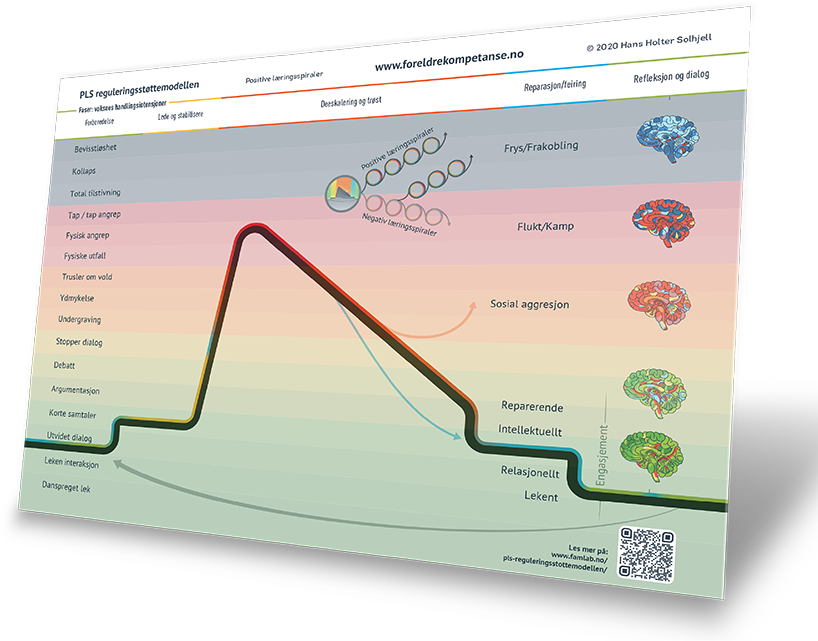
In this type of situation, it is especially important that we adults develop our own skills and understanding of conflict resolution and regulation support. This course and the PLS regulation support model will support you in this process.
You will also receive an introduction to the Response Funnel model and a bonus course on the Perspective Spiral.
If you want to learn more about the PLS Regulation Support Model and how to put it into practice in your daily life, we have three options: Our course in communication and conflict resolution in relationships with children, private sessions, and our trainer training (a 12-day program that takes place over a year).
Stress and Trauma Affects Brain Development
Psychoneurobiological attachment theory describes how relational interpersonal experiences affect the development and function of the brain and nervous system. And especially the functions and parts of the brain that are related to affect regulation, self-regulation, and executive functions. Affect regulation and self-regulation are skills that we continue to develop throughout our lives, including throughout our adulthood.
A child’s development of self-regulation capacity is largely influenced by the quality of co-regulation and regulation support they receive from their caregivers in everyday situations over time. And the biological maturation of the child’s brain and nervous system are in many ways dependent on this co-regulation and on relational experiences that support development over the long term. In reality this is the case throughout our entire lifetime, to different degrees.
Gradually increasing self-regulation capacity and the maturation of the associated biological structures are important factors in a child’s development of good mental health, ability to cope with major stresses, resilience, and optimal further development in life.
The course is also relevant for adults who have experienced trauma, or who want to understand more about themselves and their own experiences with trauma and relational stress. When we can better understand and process our own emotional, cognitive, and behavioural response patterns, we are better able to self-regulate. Obviously, this is an advantage when we are supporting children through our co-regulation, and this course will provide you with some insights about how to achieve this.
However, learning to self-regulate requires more time and exercises which are not in the ambit of the course.
But the course is not set up with exercises in relation to this, which requires more time.
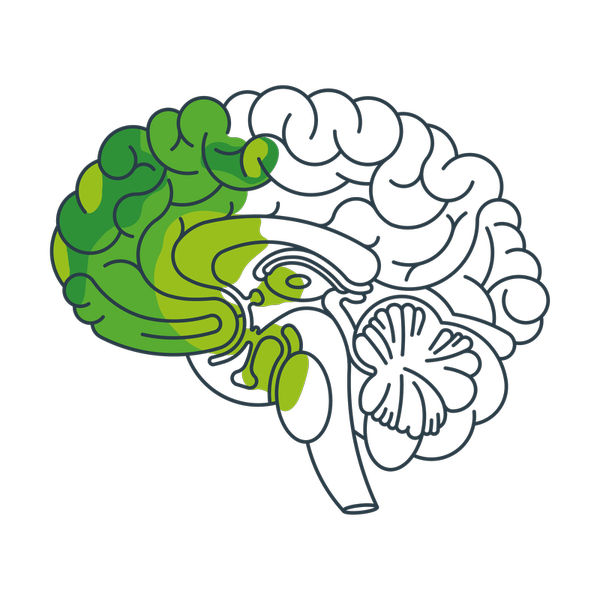
Our capacity for self-regulation is largely responsible for our capacity to deal with stress and the demands of life and preserve or restore our own experience of security, inner freedom, and vitality in the situations we are in. And by our ability to handle gradually more complex challenges throughout our lives. Especially in relation to both positive and negative relational stress.
Relational stress, whether positive or negative, is an inherent part of all relationships and all social interaction. A child’s ability to self-regulate is important not only for regulating negative emotions but also for maintaining and modulating positive emotions. For a child, this is important in relation to (for example) taking initiative and participating in play and curiosity while they explore their social and physical environments and their own capabilities.
Gradually increasing self-regulation capacity and the maturation of the associated biological structures are important factors in a child’s development of good mental health, ability to cope with major stresses, resilience, and optimal further development in life.
The course is also relevant for adults who have experienced trauma, or who want to understand more about themselves and their own experiences with trauma and relational stress. When we can better understand and process our own emotional, cognitive, and behavioural response patterns, we are better able to self-regulate. Obviously, this is an advantage when we are supporting children through our co-regulation, and this course will provide you with some insights about how to achieve this.
However, learning to self-regulate requires more time and exercises which are not in the ambit of the course.
But the course is not set up with exercises in relation to this, which requires more time.
Our capacity for self-regulation is largely responsible for our capacity to deal with stress and the demands of life and preserve or restore our own experience of security, inner freedom, and vitality in the situations we are in. And by our ability to handle gradually more complex challenges throughout our lives. Especially in relation to both positive and negative relational stress.
Relational stress, whether positive or negative, is an inherent part of all relationships and all social interaction. A child’s ability to self-regulate is important not only for regulating negative emotions but also for maintaining and modulating positive emotions. For a child, this is important in relation to (for example) taking initiative and participating in play and curiosity while they explore their social and physical environments and their own capabilities.
